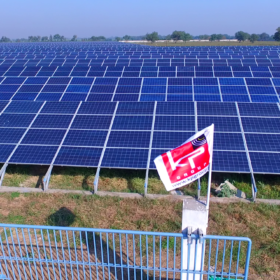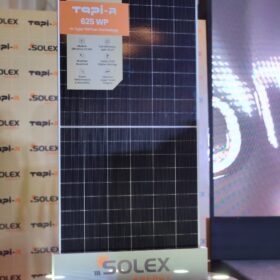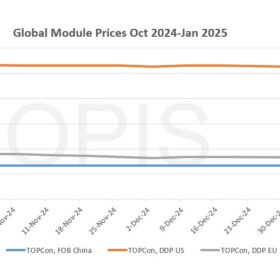Virescent Infrastructure acquires 76 MW of operating solar assets in India
US investor KKR-backed Virescent Infrastructure has acquired Singapore-based Sindicatum Group’s operating solar assets in three Indian states. The acquired PV projects benefit from long-term power purchase agreements with government counterparties.
Goldi Solar supplies 24+ MW modules to a textile client
The Surat-based solar manufacturer has completed the supply of an aggregate 71,690 quantity of 335Wp polycrystalline solar panels to a textile company LS Mills.
KPI Global secures 12.5 MW captive solar project
Gujarat-based solar developer KPI Global has received a letter of intent from Anupam Rasayan India to execute a 12.5 MW solar project under captive power producer category.
US-based EverGreen Power to assess feasibility of 300MW wind-solar-storage project in Gujarat
The U.S. Trade and Development Agency (USTDA) is funding the 300MW wind-solar-storage project as part of its mission to promote sustainable infrastructure projects in partner countries like India.
India’s biggest coal producer secures first solar PPA
In its maiden venture into solar power generation, state-run Coal India Limited will set up a 100 MW plant and sell the electricity produced to Gujarat Urja Vikas Nigam Ltd for 25 years.
Torrent Power secures PPA for 300 MW solar capacity in Gujarat
The integrated power producer will sell solar power from the Gujarat plant to its licensed distribution business unit at an INR 2.22/kWh tariff.
Gujarat is progressing towards its solar PV rooftop target 2021-22
Gujarat tops the list of Indian states with respect to installed solar rooftop capacity, as it has already achieved around 40 percent of its allotted target. The persisting pandemic has slowed down the pace of capacity addition but policy incentives like SURYA- Gujarat are paving way towards Gujarat’s clean energy transition.
ReNew Power commissions 105 MW solar project in Gujarat
The Indian developer has followed up the commissioning of a 110 MW solar plant in Rajasthan earlier this month with a 105 MW PV farm in Gujarat. The Gujarat plant will supply electricity to state Discom Gujarat Urja Vikas Nigam Limited (GUVNL) at a tariff of INR 2.68/kWh (US$0.036/kWh).
Adani Green awarded 150 MW solar project by Torrent Power
The PV plant—to be set up in Gujarat—will supply power for INR2.22/kWh for 25 years.
Implementing time-of-use tariff for peak load management
Time-of-use (ToU) tariff can be applied to encourage domestic and industrial consumers to shift their electricity usage to non-peak hours, thereby reducing the system’s load during peak periods. A new study examines the feasibility of the ToU tariff policy in the state of Gujarat. It also suggests a framework and effective roadmap for the utilities to understand the procedure and required infrastructure to implement ToU.













